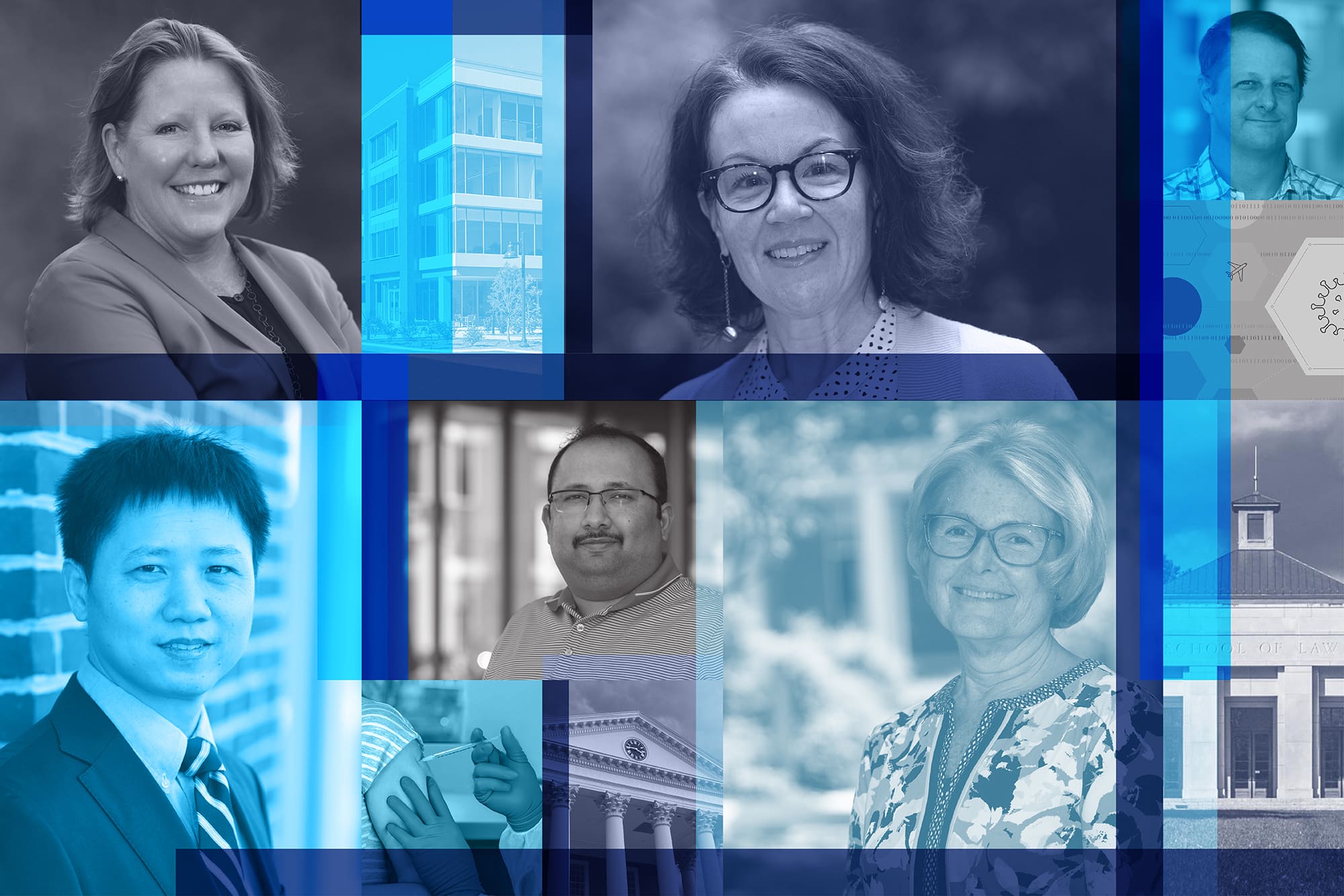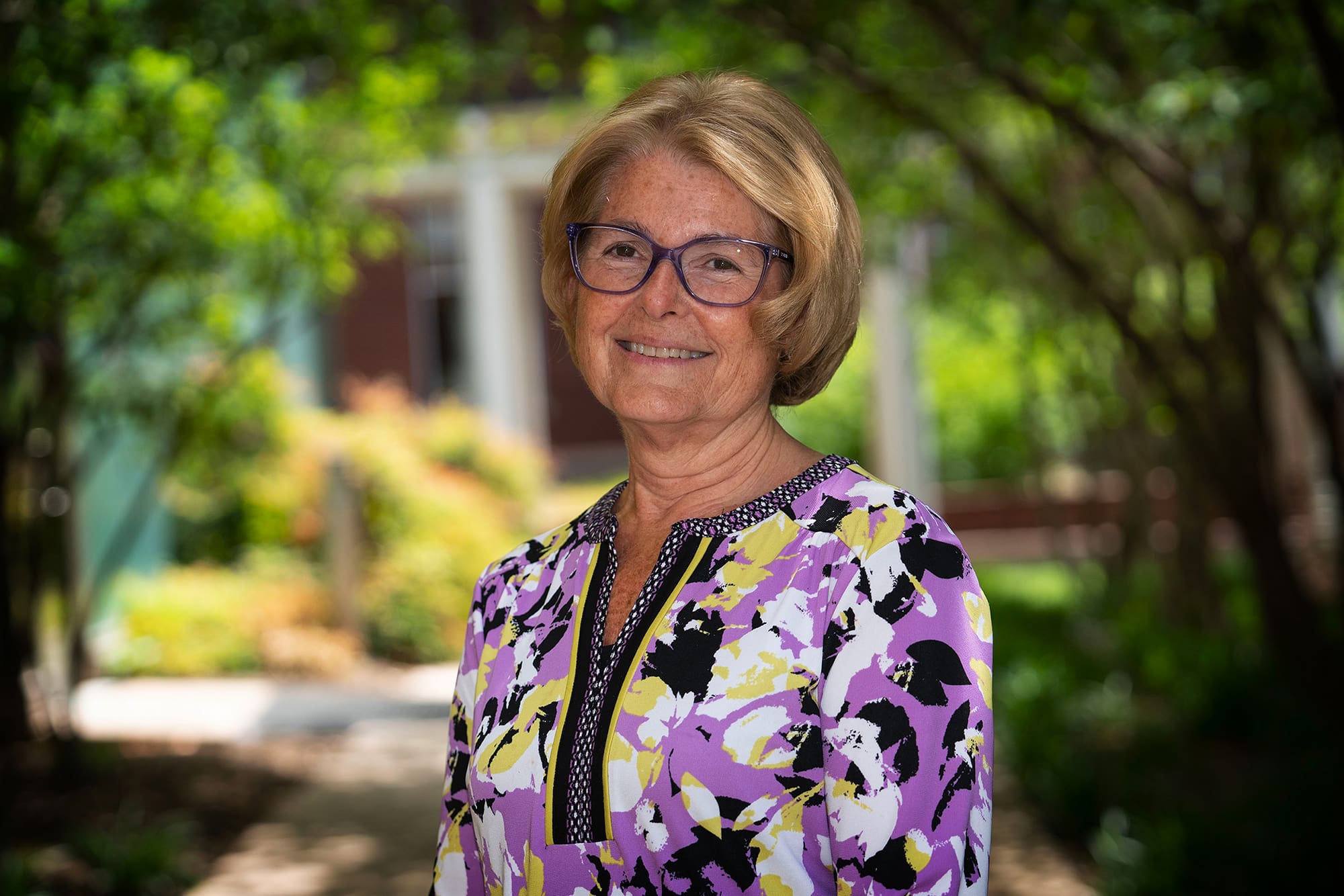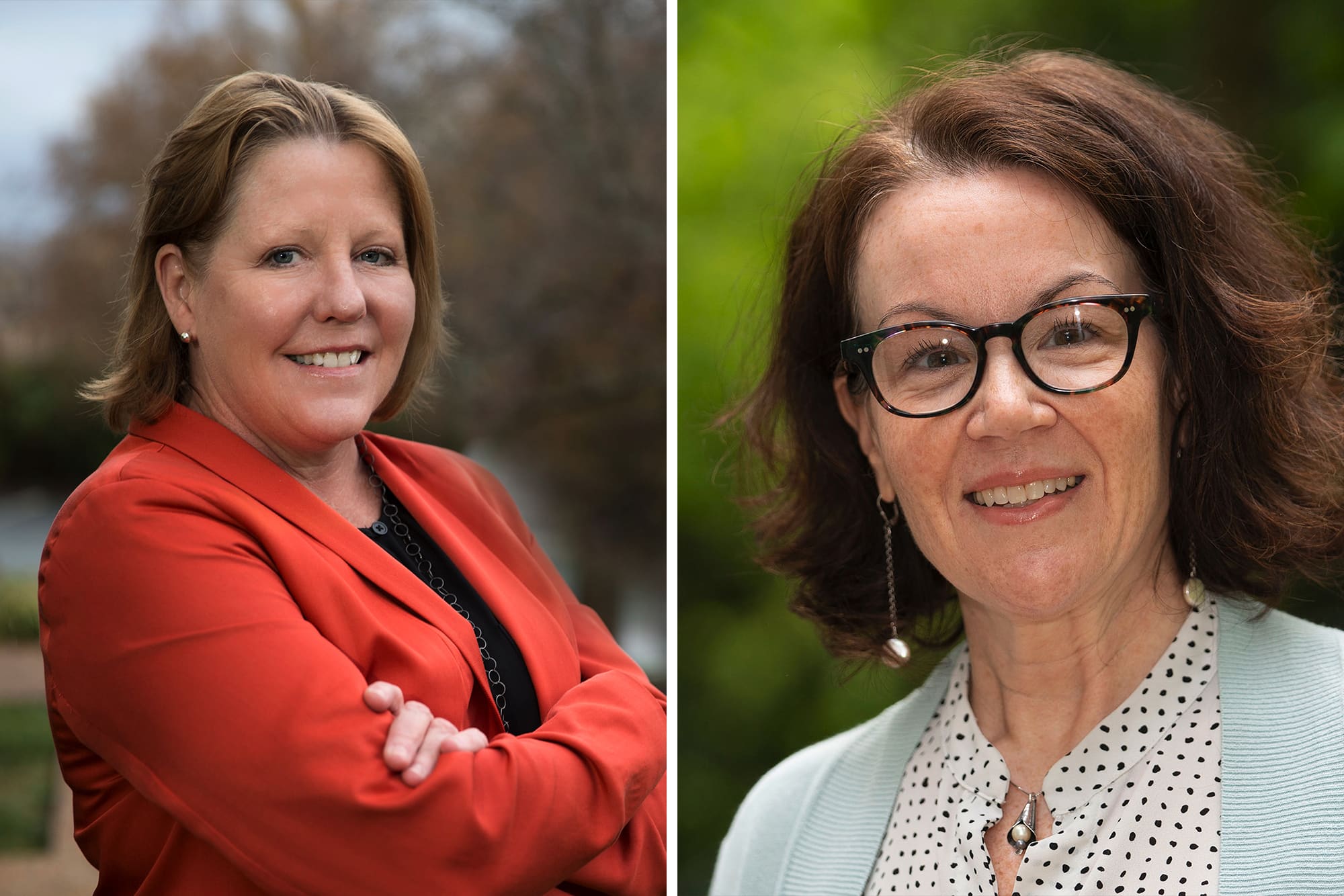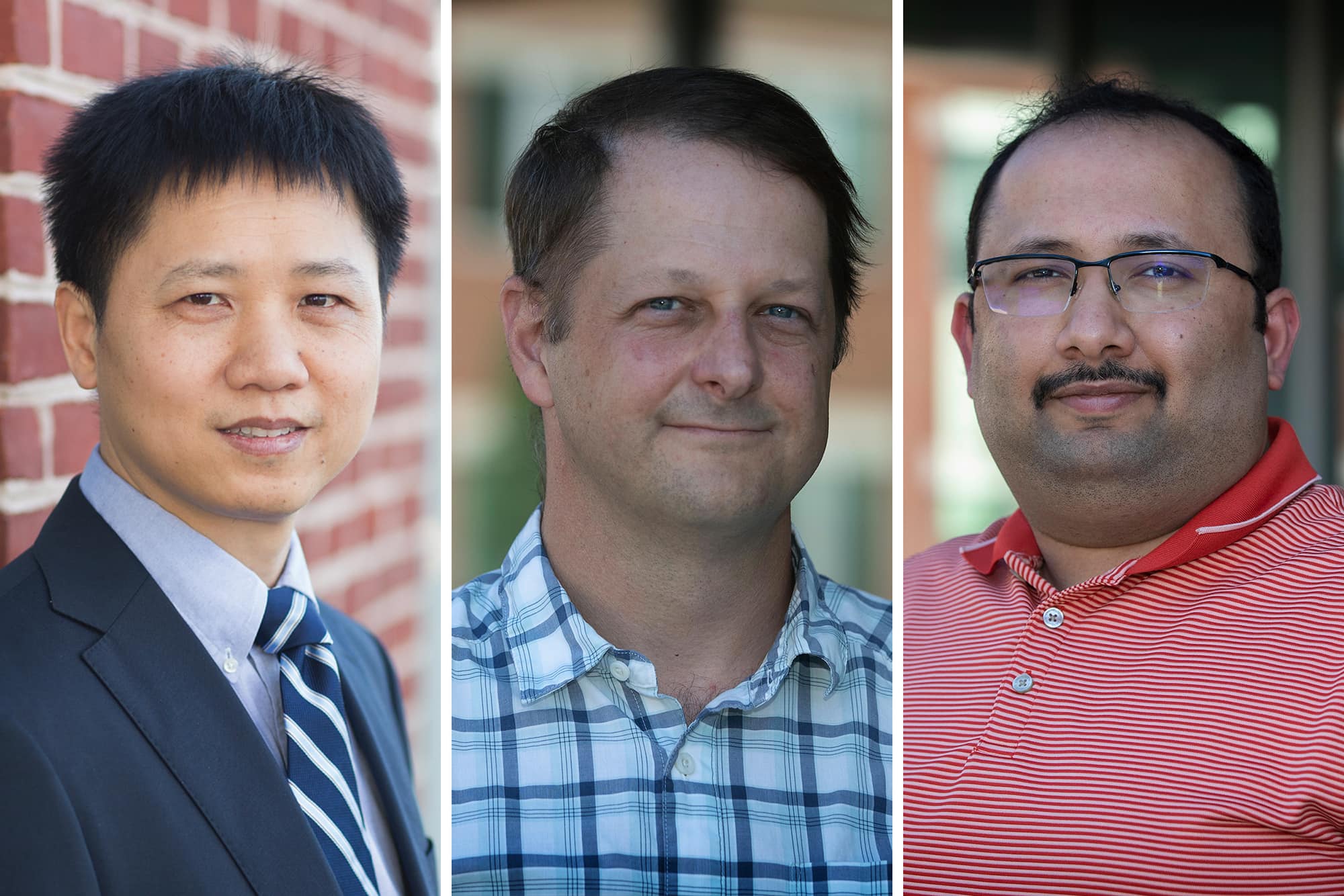A bridge-builder in the health district, a pair of professors who helped wrongfully convicted persons and a trio of scientists who analyzed the coronavirus early in the pandemic have been awarded this year’s University of Virginia public service awards.
Sharon Veith won the Provost’s Award for Excellence in Public Service. She has been the UVA School of Nursing liaison to Charlottesville’s Westhaven neighborhood for more than five years, working with community members, steering committee partners and many agencies that serve within the community. Veith epitomizes the award’s purpose: “to recognize a faculty member whose work demonstrates the greatest positive impact in a particular place or community and who has undertaken that work together with students.”
Additionally, two teams of faculty members won the Provost’s Office Award for Collaborative Excellence in Public Service.
Deirdre Enright and Jennifer Givens, professors at the School of Law, won for their efforts in directing the Innocence Project at the UVA Law School, which over time has freed and exonerated a number of wrongfully convicted men, while increasing public awareness of how innocent people can sometimes be incarcerated.
Jiangzhuo Chen, Bryan Lewis and Srini Venkatramanan, of UVA’s Biocomplexity Institute, won for their work analyzing the coronavirus as the pandemic unfolded, and advising UVA and other authorities.
The collaborative award, which also requires student involvement on projects, recognizes diverse departments and disciplines who’ve had an impact on societal wellbeing in a particular area. The selection committee for these public service awards includes members of the Charlottesville community, as well as UVA faculty.
Provost Ian Baucom, Vice Provost for Academic Outreach Louis Nelson and other University officials feted the group of winners at a Monday reception (where UVA teaching awardees were also celebrated).











